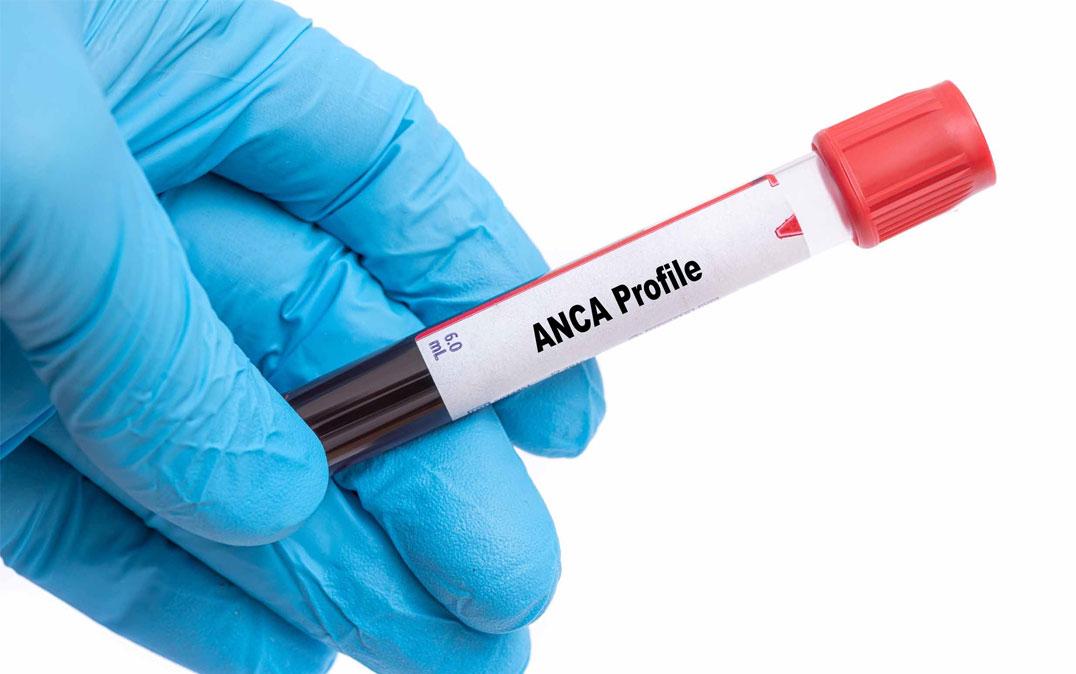Research News
Association of HLA Class II Alleles with Risk of Relapse in Myeloperoxidase-Antineutrophil Cytoplasmic Antibody Positive Vasculitis in the Japanese Population
 Image by luchschenF/Shutterstock
Image by luchschenF/ShutterstockVasculitis is a group of conditions that results in inflammation of the blood vessels. Symptoms include rash, shortness of breath, vision loss, and kidney failure depending on the location of the inflamed vessels. A rare type of vasculitis, ANCA-associated vasculitis (AAV), is associated with the presence of antineutrophil cytoplasmic antibodies (ANCA); these antibodies are directed against components in the cytoplasm of neutrophils. In addition, based on the antigenic specificity of ANCA, there are two major types of AAV characterized by antibodies against proteinase 3 (PR3) or myeloperoxidase (MPO). The incidence of each type of ANCA-associated vasculitis appears to vary by geographical location with PR3-AAV being more common in European populations and MPO-AAV being more common in Japanese populations. The annual incidence of AAV in Japan was estimated to be 22.6 / million people per year.
Because the AAV is thought to be an autoimmune disease, treatment consists of a combination of corticosteroids, cyclophosphamide, rituximab, and/or azathioprine. These immunosuppressive regimens can achieve remission in a substantial proportion of patients. However, many patients experience relapse; for example, 50% of European patients with GPA experience relapse within five years. Furthermore, the risk of relapse was reported to be higher in those with GPA and PR3-AAV as compared with MPA and MPO-AAV.
Several genome-wide association studies have been conducted to determine genes that may be associated with susceptibility to AAV. The PRTN3 and SERPINA1 genes, which encode PR3 and alpha1-antitrypsin, have been identified as susceptibility genes to GPA and PR3-AAV in European populations. Also, in the Europeans, the HLA-DPB1*04:01 gene was significantly associated with susceptibility to GPA and PR3-AAV.
HLA molecules are involved in antigen presentation within the immune system. These molecules physically associate with antigenic peptides and "present" them to immune cells, resulting in immune activation against the antigenic peptide. Therefore, specific HLA molecules can be associated with autoimmune disease, as they are better able to "present" an autoantigen and thus enhance immune reactivity to it.
Genes associated with the MPO-AAV subtype, more common in Japanese populations, have not been well-studied. The research team led by Naoyuki Tsuchiya investigated genes, including HLA genes, associated with susceptibility to MPO-AAV and with a tendency of the AAV to relapse. They were especially concerned with identifying biomarkers that could predict relapse in patients with AAV.
Using data obtained from two Japanese clinical trials of remission induction therapy in patients with AAV (RemIT-JAV and RemIT-JAV-RPGN), the authors analyzed the association of HLA molecules with MPO-AAV susceptibility and relapse. They found that the HLA-DQA1*03:02 allele was associated with a greater susceptibility to MPO-AAV and MPA in a Japanese population. This particular allele was also recently associated with susceptibility to MPO-AAV in a Chinese population. This finding also extends to Tsuchiya and colleagues' previous work that identified HLA-DRB1*09:01 and HLA-DQB1*03:03 as susceptibility alleles in the Japanese population. Furthermore, they found that HLA-DQA1*03:02 was closely linked to the HLA-DRB1*09:01 and HLA-DQB1*03:03 alleles. Professor Naoyuki Tsuchiya theorizes, "it is possible that specific antigenic peptides derived from human MPO or microbial peptides mimicking human MPO peptides might be preferentially presented by HLA-DR and/or DQ molecules encoded by these alleles".
The rate of relapse during the observation period of 2 years in this cohort was 19.6%. Relapse was defined as the recurrence or new onset of clinical signs and symptoms attributable to active vasculitis, but did not include a requirement for treatment escalation. In terms of predicting relapse, Tsuchiya and colleagues determined that these three alleles, HLA-DRB1*09:01, HLA-DQB1*03:03, and HLA-DQA1*03:02 and an additional allele, HLA-DRB1*08:02 showed a tendency towards an increased risk of relapse in patients with MPO-AAV.
Finally, Tsuchiya and colleagues examined whether specific amino acid changes in HLA molecules were associated with a tendency towards relapse in MPO-AAV. They found that a serine in HLA-DRβ1 at position 13 was associated with a longer relapse-free survival period. When the patients were classified according to the carriage of DQA1*03:02 (as a representative of the risk haplotype) and protective DRβ1 position 13 serine, in combination, the difference in the relapse-free survival reached statistical significance.
In conclusion, Professor Naoyuki Tsuchiya and colleagues state that, "these findings may lead to the identification of biomarkers that can predict the relapse risk of MPO-AAV and eventually lead to precision medicine solutions for the treatment of MPO-AAV".
###
This work was supported by the grants from the Japan Agency for Medical Research and Development "The Study Group for Strategic Exploration of Drug Seeds for ANCA Associated Vasculitis and Construction of Clinical Evidence [grant number 17ek0109104h0003]", "The Strategic Study Group to Establish the Evidence for Intractable Vasculitis Guideline [grant number 17ek0109121h0003]", and "Multitiered study to address clinical questions for management of intractable vasculitides [grant number 20ek0109360h003]", Ministry of Health, Labour and Welfare [grant number JPMH20FC1044], Japan Society for the Promotion of Science KAKENHI [grant number JP17K09967, JP21K08435], research grants from Bristol-Myers Squibb K.K., Ichiro Kanehara Foundation, Takeda Science Foundation, the Uehara Memorial Foundation, collaborative research fund from H.U. Group Research Institute G.K., and award grants from Japan College of Rheumatology and Japan Rheumatism Foundation. The funders had no role in the design, analysis, interpretation and paper writing of this study.
Original Paper
- Title of original paper:
- Association of HLA class II alleles with risk of relapse in myeloperoxidase-antineutrophil cytoplasmic antibody positive vasculitis in the Japanese population
- Journal:
- Frontiers in Immunology
- DOI:
- 10.3389/fimmu.2023.1119064
Correspondence
Professor TSUCHIYA Naoyuki
Faculty of Medicine, University of Tsukuba



